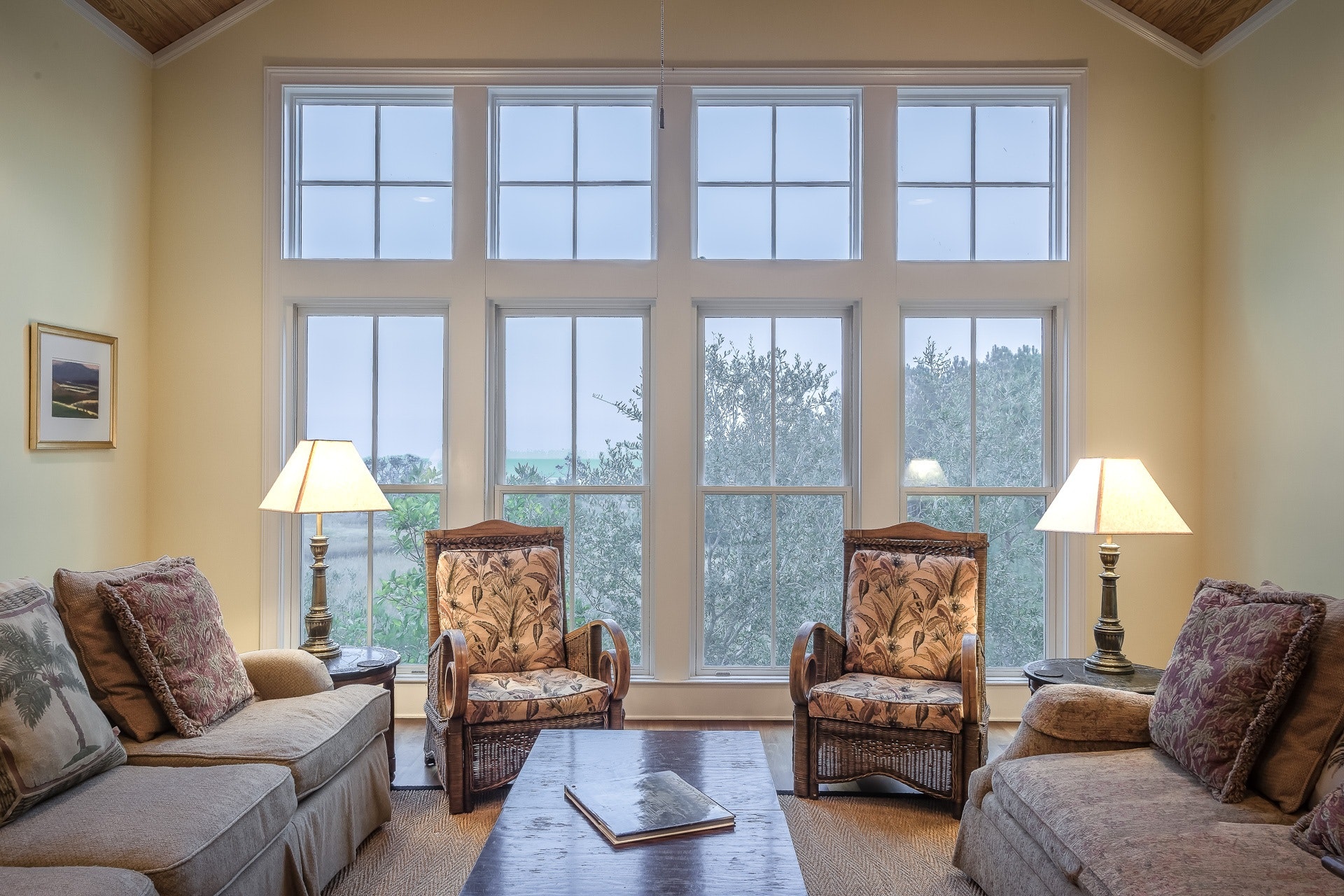Are you worried that if you or a loved one is placed in a nursing home, your house (and its equity) will be taken away? It’s understandable that this is something that many people fear – but by understanding how such arrangements work and taking certain steps early on, it’s possible to protect yourself from this happening. In this blog post, we explain how to avoid nursing home taking your house following a stay in long-term care or hospice. Read on to get all of the facts – so rest assured when those difficult decisions come up.
Contents
Overview Of The Issue
What Is A Nursing Home?
Before discovering how to avoid nursing home taking your house, a nursing home is a facility that provides around-the-clock care and assistance for people who need help with everyday activities. Nursing homes typically provide long-term care, which means that residents may stay there indefinitely as opposed to shorter-term stays for rehab or palliative care.

What Is A Nursing Home’s Potential Asset Loss?
When a person enters a nursing home, the facility has the right to ask for financial information and assets. They can do this to determine if a resident is eligible for Medicaid and/or other forms of public assistance. If it appears that an individual has sufficient assets or income to cover their care costs, then those funds must be applied toward their care before any public assistance is available. This means that a nursing home can potentially take away your house and other assets to pay for care costs if they determine that you are ineligible for public assistance.
How To Avoid Nursing Home Taking Your House?
So how to avoid nursing home taking your house? There are several strategies you can use to protect your home from nursing home costs. Here are a few of the most common:
- Transfer Assets To A Spouse or Family Member: You can transfer assets, such as your house, to a spouse or family member before entering a nursing home. This way, those assets will not be taken by the nursing home.
- Setup A Trust Fund: You can also setup a trust fund to protect your assets from being taken by a nursing home. This type of trust will allow you to keep control over how the money is used while also protecting it from any potential liens against it.
- Make Use Of Long Term Care Insurance: If you have long term care insurance, you can use it to cover your nursing home expenses. This way, your assets are not taken by the nursing home and you can still receive quality care without having to worry about losing any of your hard-earned savings.
- Qualify For Medicaid: You may be able to qualify for Medicaid if your income and assets meet certain eligibility requirements. This could allow you to pay for a nursing home stay without having to worry about your house being taken away.
Why To Avoid Nursing Home Taking Your House?
It is important to protect your home and other assets from being taken away by a nursing home. If you enter a nursing home without taking any precautions, then any assets that you have could be used to pay for your care. This means that if the costs become too high, then those funds could be taken away – leaving you with nothing to show for all of your hard work.
Why To Protect Personal Assets From Nursing Home?
Knowing how to avoid nursing home taking your house and protecting your assets is important for a variety of reasons. Firstly, it ensures that you will have something to pass on to your loved ones when you are eventually gone. Secondly, asset protection can help minimize any taxes or fees that may be levied against you in the future. Finally, protecting your assets can ensure that if an unexpected event such as long-term care arises, you will still have something to fall back on.
How To Make Insurance Coverage For Nursing Home?
It is also important to make sure that you have adequate insurance coverage for any long-term care needs. This can include:
- Health Insurance: Your health insurance policy may cover some or all of your nursing home expenses. Check with your provider to see what type of coverage is available and how much it will cost.
- Long-Term Care Insurance: This type of insurance policy is specifically designed to cover long-term care costs. It can provide some protection against having to use your assets to pay for nursing home fees.
- Medicare Coverage: If you are 65 or older, you may be eligible for certain types of coverage through Medicare. Check with your provider to see what type of coverage is available and how much it will cost.
What Are Alternatives To Nursing Homes?
It is important to remember that there are alternatives to nursing homes. It may be possible to arrange for a family member or friend to care for you in your home, or to find other supportive services such as home health aides, adult day care centers, and respite care. Although these types of arrangements can sometimes be expensive, they may cost less than a nursing home stay and provide you with a better quality of care.

What Are Pros And Cons To Avoid Nursing Home Taking Your House?
Pros
- You will keep control of your assets.
- You can pass on what you have saved for to loved ones after you are gone.
- There may be tax advantages to protecting your assets.
Cons
- It may take a lot of planning and effort to protect your assets.
- You may not be eligible for Medicaid if you have too many assets.
- It may be more expensive to arrange alternative care for yourself than to move into a nursing home.

Conclusion: How To Avoid Nursing Home Taking Your House?
There are many strategies you can use to protect your house and other assets from being taken away by a nursing home. These include transferring assets to a spouse or family member, setting up a trust fund, making use of long-term care insurance, and qualifying for Medicaid. It is important to do your research before entering a nursing home so that you can make an informed decision about how to best protect your assets. Thank you for reading “how to avoid nursing home taking your house?”.
FAQs: Nursing Home
How to protect assets if spouse goes into nursing home Australia?
Safeguarding Assets Against Nursing Home Expenses 1. Refundable Accommodation Deposit (RAD): This is a lump sum payment that serves as a bond for the aged care facility. 2. Basic Daily Care Fee: A non-negotiable fee applicable to all nursing home residents. 3. Extra Services Fee: An additional fee for supplementary services. 4. Means Tested Fee: A fee based on means testing.
What are the disadvantages of a nursing home?
Discover the Downsides of Nursing Homes for Seniors 1. Costly Affair: Nursing homes can be financially burdensome. 2. Emotional Impact: The environment in nursing homes can lead to feelings of sadness and despair. 3. Loss of Autonomy: Seniors may experience a loss of freedom and independence. 4. Separation from Loved Ones: Being away from family can be challenging for seniors in nursing homes. 5. Potential for Inadequate Care: There is a risk of receiving subpar quality care in nursing homes.
Can a nursing home take your house in North Carolina?
Once you pass away, Medicaid initiates estate recovery, a procedure where the government recoups the funds you received as Medicaid payments. This implies that while you reside in a nursing home and receive Medicaid payments for your nursing home expenses, your residential property will remain under your ownership.
Do I have to sell my house to go into a nursing home in Australia?
The notion that you must sell the family home when transitioning into aged care is a misconception. The decision of whether to keep or sell the home ultimately rests with you. While selling the home may indeed be a suitable choice, it is crucial to consider a few factors beforehand.
How to protect parents assets from nursing home Australia?
Optimize your finances with these smart strategies: 1. Increase the refundable accommodation deposit for better benefits. 2. Invest in a funeral bond for future peace of mind. 3. Gift to family members within Centrelink exemption rules. 4. Ensure home contents are valued at fire sale value, not replacement value. 5. Consider purchasing a specialized annuity for long-term financial security.
What is the advantage of a nursing home?
Top-notch skilled nursing facilities offer round-the-clock medical care in a cozy environment that promotes a sense of safety and comfort for residents. In a nursing home, your loved one’s needs are diligently attended to, day or night.
How much is a nursing home per month in North Carolina?
Based on the 2020 Genworth Cost of Care Survey, the average monthly cost for a semiprivate room in a nursing home facility in North Carolina is $7,300. Notably, this amount is lower compared to the national average nursing home care price of $7,756 per month.
What happens when you run out of money in a nursing home Australia?
If someone meets the criteria, the Australian Government will cover a portion or all of the fees and charges associated with their care. The initial step involves applying for financial hardship assistance by filling out and submitting the appropriate application form. Eligibility is assessed on an individual basis, taking into account specific circumstances.
Why should seniors live in nursing homes?
Family members can receive support with everyday activities such as dressing, bathing, eating, housekeeping, meal service, and more. Nursing homes also offer continuous care to individuals requiring monitoring of chronic conditions.
How much does it cost to live in a nursing home in the US?
The cost of a nursing home can vary based on factors like location, amenities, and level of care provided. According to a recent survey conducted by Genworth Financial in 2021, the national median monthly cost for a semi-private room in a nursing home is $7,756, while a private room costs $8,821.
Who provides the most payment for nursing home residents?
The responsibility for covering the cost of nursing home care rests on various payment methods. These typically encompass government health care programs like Medicare and Medicaid, private pay options such as savings and retirement funds, as well as individual insurance plans.

Trayce served as a grassroots leader and activist in Texas as President of Dallas and Texas Eagle Forum.
Trayce is Mom Caucus Member, Texas Conservative Mamas, Texas Conservative Grassroots Coalition Leader, and Grassroots America Champion of Freedom Honoree.
She currently serves as the Eagle Forum National Issues Chair on Human Trafficking.
Trayce received a Bachelor’s Degree in Marketing from Texas A&M
Currently, she homeschools her youngest child age 13 and graduated her six oldest children, ages 31 to 19.







